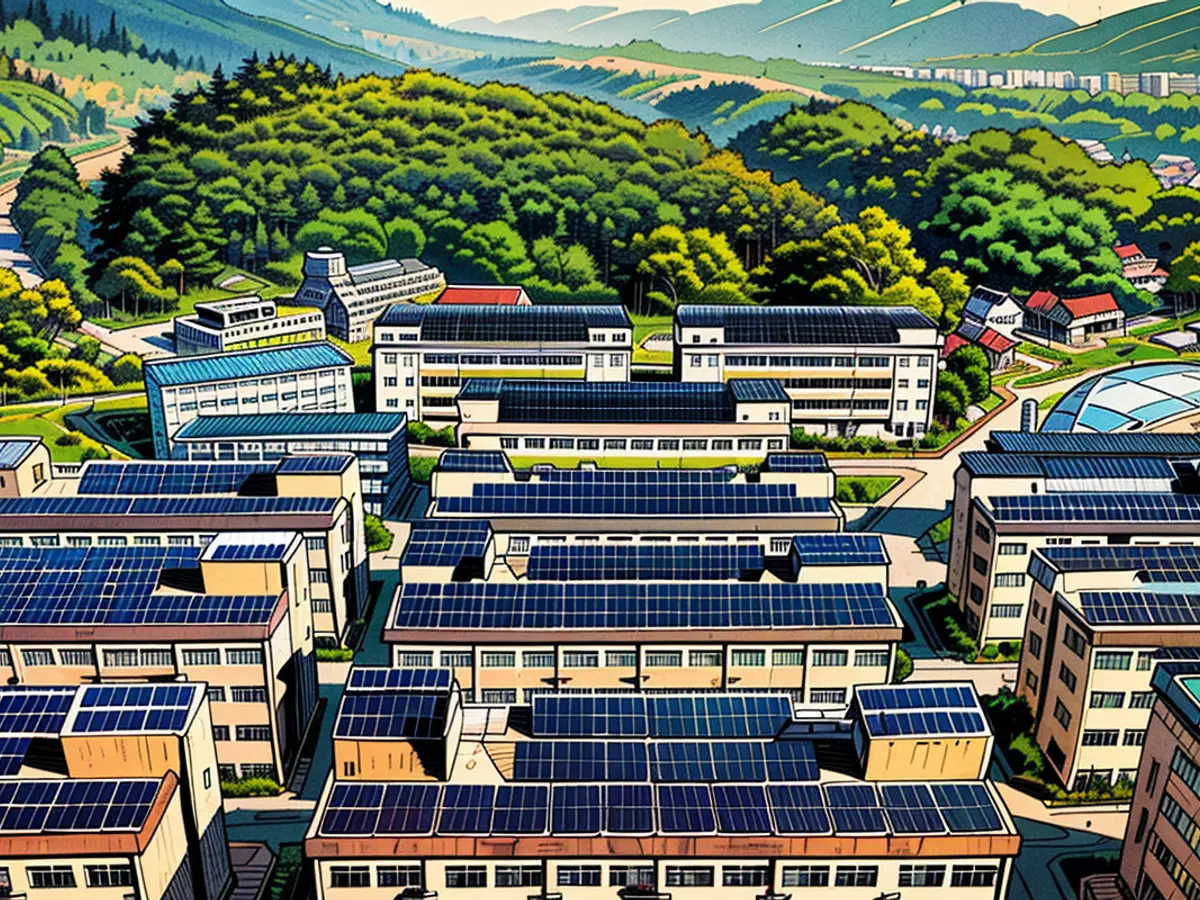energy transition - Klimarenses - Beijing installs double the amount of renewable energy as the rest of the world
At the expansion of renewable energies, Beijing leaves the rest of the world behind. According to a study by "Global Energy Monitor" (GEM) from San Francisco, China is currently building solar power plants and wind farms with a total capacity of 339 Gigawatts, almost double that of the rest of the world. Renewable energies are among the areas that China calls "new productive forces" and in which the country wants to take a leading position.
GEM assumes that China will reach its target by the end of 2024 and will then have 1200 Gigawatts of solar and wind power. The main driver is the expansion of decentralized installations on rooftops under the "Solar Energy for the Entire County" program. This shifts the installed capacity towards densely populated provinces, where most of the electricity is consumed.
Renewable Energy Fluctuates
The Chinese face the same problems as the rest of the world with the fluctuations of renewable energy generation. The boom in renewables goes hand in hand with the approval and construction of new coal-fired power plants. Unlike, for example, in Germany, electricity consumption in China continues to rise. Despite the boom, it is not possible to cover 50% of this increase through renewable energies.
Coal remains an important component of the Chinese energy mix. The country can protect itself from international crises and supply problems with coal and balance out the fluctuations of renewable energies. In Germany, new gas-fired power plants are being planned. They are cleaner than coal-fired power plants, but gas is still a fossil fuel.
Battery Build-out Moves Slowly
To cleanly balance out the generation, electricity must be stored. Battery storage is one of the central future technologies in China. In 2023, 10 billion Euros were invested in grid batteries. This is almost a fourfold increase in value compared to 2022, but the investments remain low in relation to the expansion of solar and wind energy.
However, the massive expansion also brings problems for the rest of the world. If Beijing is currently building twice the capacity as the rest of the world, it can also be translated that the Chinese domestic market accounts for 66% of the global market. Competitors, who rely on a much smaller home market, find it difficult to keep up with production and development in China due to economies of scale.
- Despite China's leading role in renewable energy transition, with plans to have 1200 Gigawatts of solar and wind power by 2024, coal power plants continue to be a significant part of its energy mix, serving as a safeguard against international crises and supply issues, and helping to balance out the fluctuations of renewable energy.
- In the context of energy transition, San Francisco-based research group "Global Energy Monitor" (GEM) has identified that China is currently constructing solar power plants and wind farms with a capacity of 339 Gigawatts, almost doubling the global total.
- Acknowledging the importance of renewable energy in its "new productive forces," China has focused on decentralized installations on the roofs of houses as part of the "Solar Energy for the Entire Country" program, shifting the installed capacity towards densely populated provinces where most of the power demand lies.
- Recognizing the necessity of storing excess energy to balance out renewable energy generation, China has invested heavily in battery storage, allocating 10 billion Euros in 2023 for grid batteries, however, the investments are still relatively low compared to the rapid expansion of solar and wind energy.








